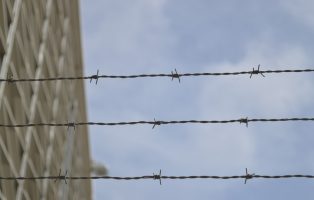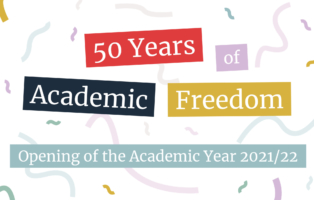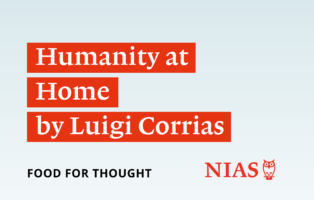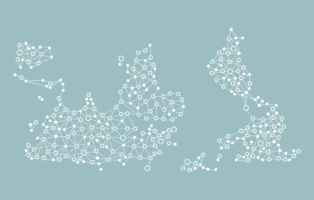NIAS firmly believes in unfettered research and research which is driven by curiosity. The attacks on academic freedom worldwide are very disturbing and take on different forms. There is direct interference by politicians on saying what researchers can study but also indirectly by what research grants are made available. To discuss this issue NIAS will be organising a series of talks on attacks on Academic Freedom.
This talk, held on 14 Apil 2021 focused on the case of France but future talks will include studies from other countries including the Netherlands. The goal of organising these talks is to see patterns and differences and how academic traditions and concepts are mobilised.
it is an attack on critical knowledge
The case in France
Eric Fassin, Professor of sociology at the University of Paris 8 St-Denis, and a victim of the attacks himself spoke about the importance to think beyond borders. “What in the past seemed to happen far away only in authoritarian regimes is happening closer to home. There are differences but the logic is the same; it is an attack on critical knowledge.” He went on to explain the case in France.
Fifteen years ago, Nicolas Sarkozy attacked the social sciences saying it tried to explain and therefore justify problems like crimes in the suburbs or terrorism. This idea of explaining meaning justifying was picked up by the president Manuel Valls in 2010’s and continued through social and traditional media channels.
Things came to a head with liberal president, Macron, who after elections became anti-liberal and anti-intellectual. This was evident in the case of an education union being sued by the minister of education for talking about state racism. Macron got the unanimous support of the national assembly to pursue this in court. It became a case of the campaigners of anti-racism being accused of racism.
The accusations started gaining ground and last June the President accused academics of being responsible for secessionism in French society with theories like intersectionality. The Minister of Education took this further by saying academics were intellectually complicit with terrorists and has ordered an investigation into what’s going on in academia.
These attacks also take place from within academia; with people from different disciplines. Linguists have been attacking scholars in the social sciences questioning their competency? There is a trend here, that it is a generational issue. It mostly tends to be white retired academics leading the attacks. The tendency in public debate is that anyone can attack academics, and can evaluate academics in academic terms, calling into question the whole idea of academic legitimacy.
The reason for these attacks is largely because the composition of what Academia looks like is changing. From being predominantly white to becoming more mixed.
Separatism as an attack on Universalism
NIAS Fellow Katell Lévant highlighted two specific cases which continued Eric Fassin’s argument of academia becoming more mixed and becoming a subject of political attacks.
Recently, the French student union, UNEF and its president Mélanie Luce advocated the creation of non-mixed groups for BIPOC students and teachers. This caused an uproar in France saying that it went against the idea of universalism.
In 2017, Sud education 93 (a teachers union), wanted to discuss racism in schools and recommended creating non-mixed groups or committees to fight this. The Minister of Education filed a defamation claim, seeing it as a slur against the French state.
In both cases, separatism was seen as an attack against the French Republic’s idea of universalism.
On 12 April 2021, a draft law was presented against separatism. The measures discussed were forbidding religious prayers in French Universities, and forbidding Muslim teachers to wear a hijab if they go outside the school with children. Some measures in this law were directly against universities as public spaces
Problem of a Gendered Language
In France, language is also a battlefield. The French language is a gendered language. Plurals become masculine as a general rule. Linguists proposed gender-inclusive rules or using less gendered sentences, and Universities lay at the heart of starting the practice of using a more inclusive language. This didn’t sit well either. Minister Vidal, the Education Minister called for an investigation by the National Research Centre or CNRS on ‘islamo-leftism’ cases in French universities.
Last month, a draft law was proposed against inclusive writing in all administrative writing. Here politicians clearly state by law how language should or should not evolve. Should this law succeed, it would become a blanket law, even for scientific publications.
Here, the French Republic idea of universalism is invoked to counter the evolution of language and in turn systematic racism and sexism.
Historical Explanations
The third and last speaker of the seminar, Jim House, NIAS fellow and cultural historian gave examples from French history, which help explain what was going on today.
The French republican political culture delegitimizes certain forms of opposition to racism, especially those which mobilise cultural, ethnic, racial or religious identities in the fight against racism. There are examples from the 1930s in the fight against antisemitism and the extent to which Jewish identities should be mobilized in the fight. Same with questions of anti-black racism and anti-colonialism: foregrounding a Black identity led to the birth of the négritude movement. In the 1930s, as more recently, there were many debates within the black diasporas about how ‘race’ articulated with class.
Accusations that certain antiracist movements contribute to the ethnicization of French society can come from the Left as well as Right, as we saw during the 1980s, in particular during the powerful antiracist marches of 1983-1984. Such accusations are used in an attempt to delegitimize forms of antiracism that do not correspond to the dominant understanding of antiracism.
Politicians often refuse to recognize the problem or even idea of institutionalized racism in France, notably regarding the police. This often prevents advocacy groups from doing their work and marginalizes more radical forms of antiracism.
But there is a peculiar recent development. Given the wider context of Islamophobia, the far-right is instrumentalising secularism, and this is a new position for them. In so doing, they have further opened up the political and intellectual field to anti-anti-racism, portraying themselves, along with the moderate Right and Left, as the defender of republican institutions and social cohesion against ‘separatism’.
The series on Attacks on Academic Freedom will continue, although we are still working out the form. These are important discussions that have an urgency. Should you wish to participate or listen in to the next discussion, please email us at events@nias.knaw.nl




